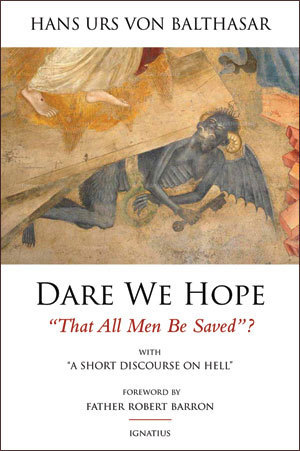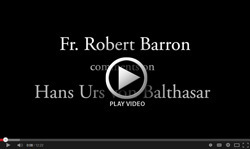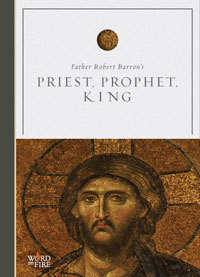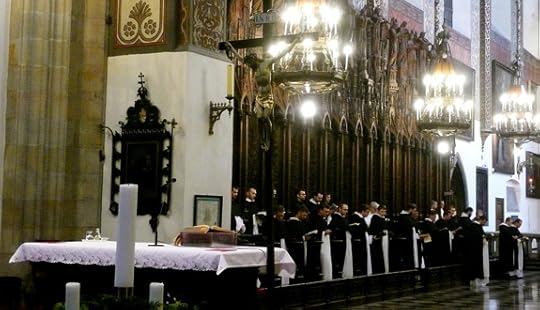Carl E. Olson's Blog, page 61
January 17, 2015
Christ's question for everyone: “What are you looking for?”

"The Calling of the Apostles Peter and Andrew" (1308-11) by Duccio [WikiArt.org]
A Scriptural Reflection on the Readings for Sunday, January 18, 2015 | Carl E. Olson
Readings:
• 1 Sam 3:3B-10, 19
• Psa 40:2, 4, 7-8, 8-9, 10
• 1 Cor 6:13C-15A, 17-20
• Jn 1:35-42
“What are you looking for?”
It is a question meant for all men of every time and in all places and situations. It is the question put to the two disciples by Jesus in today’s Gospel reading. What are you seeking? What is the purpose of your existence? Who are you looking for?
The Fourth Gospel is filled with questions, each revealing something important and telling about the questioner. The first chapter alone contains a dozen questions, many of them asked by religious leaders or disciples. A couple of questions in John 1 are, however, put forward by Jesus (Jn 1:38, 50). The contrast is notable. While the questions asked by others often betray ignorance and even animosity, the questions asked by Jesus throughout the Gospel of John display knowledge and understanding. He often asks the questions that others either don’t want to ask or don’t think to ask. And his questions are meant to challenge his listeners to have faith.
For example, when speaking with Nicodemus about being “born from above,” Jesus states, “If I tell you about earthly things and you do not believe, how will you believe if I tell you about heavenly things?” (Jn 3:12). When some of the disciples leave Jesus after his shocking statements about eating his flesh and drinking his blood, Jesus challenges those who remain: “Do you also want to leave?” (Jn 6:67). And while engaged in a tense confrontation with the Pharisees, Jesus bluntly says, “Can any of you charge me with sin? If I am telling the truth, why do you not believe me?” (Jn 8:46).
Theodore of Mopsuestia, a fourth-century bishop also known as “Theodore the Interpreter,” wrote that Jesus asked his question of the two disciples “in order to give them an occasion to trust him.” They responded by entering into that trust, first by addressing Jesus as “Rabbi” (or “Teacher”), and then by asking where he was living. Having been seekers, they became followers.
The reply given by Jesus—“Come, and you will see”—is, like so many of his statements, loaded with multiple meanings on different levels. On the material level, the disciples did follow and see where he dwelt. But on a deeper, spiritual level, they entered into a relationship—Teacher and disciples—that eventually revealed to them a shocking truth: Jesus is the Word, who “was with God” and who “was God” before the beginning of creation (Jn 1:1-3). The One who now dwelt among men was one with the Father, and had been sent to call men to himself, to seek and to save. Those saving truths were given to the disciples because, Jesus said in his high priestly prayer to the Father, “they accepted them and truly understood that I came from you, and they have believed that you sent me” (Jn 17:8).
After spending the day with Jesus, the two disciples (Andrew and possibly John the Evangelist) find Simon, saying, “We have found the Messiah.” First seekers, then followers, and, finally, disciples. And, in bringing Simon to Jesus, they begin their work as apostles—those who are sent out to proclaim the Gospel.
Man, created in the likeness and image of God but mortally wounded by sin, hungers for truth and meaning. God, the Catechism observes, “calls man to seek him, to know him, to love him with all his strength” (par 1). Becoming a disciple “means accepting the invitation to belong to God's family, to live in conformity with His way of life” (par 2233). That family, of course, is the Church, and her members pursue holiness, by God’s grace, recognizing the profundity of St. Paul’s words to the Corinthians: “For you have been purchased at a price. Therefore glorify God in your body” (1 Cor 6:20).
But it is not enough to keep and live the faith; we must “also profess it, confidently bear witness to it, and spread it…” (CCC, par 1816). We must be disciples by asking others, however we can: “What are you looking for?”
(This "Opening the Word" column originally appeared in the January 18, 2009, edition of Our Sunday Visitor newspaper.)
January 16, 2015
G. K. Chesterton: The Tame Oracle?

G. K. Chesterton: The Tame Oracle? | John Herreid | IPNovels.com
G.K. Chesterton loved to argue. He argued with his family, he argued with his friends, he argued his enemies into becoming his friends. His infectious delight in argument won over some other prominent literary figures who were determined to dislike the man. They found that he had no qualms being friends with them—so long as they didn’t mind arguing with him.
Chesterton’s essays in the Illustrated London News read as rambling, pugnacious invitations to argument. Nothing was off limits in his column, everything was fodder for jumping from subject to subject, jabbing and poking at the ideas he found incorrect. He exaggerated, tossed off outrageous hyperbole, and overstated his case; in short, he was a provocateur.
I love Chesterton. I’ve been fortunate enough to design a couple of book covers for the Ignatius Press editions of his work, and I’ve been collecting original editions of his books when I can. But good old G.K.C. the wild provocateur is in danger these days. Chesterton the tame oracle is taking his place.
Love of Chesterton has led many people to simply read him while disengaging the critical part of their mind. They accept everything he says at face value—so you’ll have people uncritically agree with, for example, Chesterton’s insistence that women be denied suffrage. If G.K. said it, he must be right! He’s our tame oracle.
This does a disservice to Chesterton.
January 15, 2015
New von Balthasar site, new edition of "Dare We Hope", new interview with Fr. Barron

Fr. Fessio founded Ignatius Press with the desire to make the works of the great Swiss theologian Hans Urs von Balthasar available in English.
With that in mind, we are pleased to announce the launch
of a brand new website devoted to his works,
www.balthasarbooks.com
To celebrate this launch we are offering 20%* off our our new edition
of von Balthasar's challenging and controversial work :

Dare We Hope
2nd Edition
Hans Urs von Balthasar
Foreword by Fr. Robert Barron
Softcover, 260 pages
also available as an eBook

$19.95
Save 20% on our new edition of Dare We Hope with the coupon code HOPE15 at checkout**.
Read Father Barron's full foreword to Dare We Hope here
Interested in what else Fr. Barron has to say about
Dare We Hope 'That All Men Be Saved'?
Watch his two part interview on von Balthasar from Word On Fire below.

Fr. Barron on Hans Urs von Balthasar (Part 1 of 2)

Fr. Barron on Hans Urs von Balthasar (Part 2 of 2)
**This offer is valid online only from January 15, 2015 until January 22, 2015 midnight EST.



Website



YouTube
Copyright © 2015 Ignatius Press, All rights reserved.

Share

Tweet

Forward
January 14, 2015
Available through Ignatius Press: "Priest, Prophet, King" by Fr. Robert Barron
Now available:
• Priest, Prophet, King (DVD)
(DVD)
• Priest, Prophet, King: Leader's Guide
• Prophet, Priest, King: Study Guide
by Fr. Robert Barron
The better we understand Jesus, the better we understand ourselves. But who was Jesus, this itinerant preacher whom many called the Messiah? In Priest, Prophet, King, you'll discover Jesus as the Anointed One-the ultimate priest, prophet, and king foreshadowed throughout the Hebrew Scriptures. Using biblical insights and engaging stories, Father Barron affirms that we see Jesus most clearly through the lens of the Old Testament.
This deeply biblical program, filmed in high-definition video, features an accompanying study guide by notable Catholic writer and apologist, Carl E. Olson, written under Fr. Barron's direction. (Carl also wrote the study guide for the CATHOLICISM formation program.)
Through this presentation of Priest, Prophet, King, you will better understand Jesus, become more familiar with Scripture, and realize your own priestly, prophetic, and kingly mission.
This DVD contains the following language options: English and English subtitles. Dubbed Spanish and Spanish subtitles.
The six lessons are as follows:
1. Adoratio: Adam as Priest (View lesson one video sample)
2. The High Priest
3. Challenging False Worship: Elijah the Prophet
4. The Word Made Flesh
5. Ordering the Kingdom: King David
6. King of Kings
Additional materials for this program include:
• Leader's Guide (Facilitator Guide; six lessons and Answer Key)
• Study Guide (six lessons for participants) View a sample of the study guide.
Each small group discussion leader should have the Leader's Guide and each participant should have his/her own copy of the Study Guide.
A complete session plan and other program advice is outlined in the Facilitator’s Guide, which is part of the Leader’s Guide. Each DVD segment is 20 minutes long and the discussion should be planned for 60-70 minutes, so each lesson can be covered in a total of 90 minutes. Participants should read the commentary in the study guide and prepare the Questions for Understanding and the Questions for Application before the small group discussion. This preparation can be accomplished either before or after they view the DVD, as the commentary in each lesson is very detailed.
To Listen to the Voice of God

St. Catherine of Siena, by Baldassare Franceschini (17th century).
To Listen to the Voice of God | Brent Withers | Homiletic & Pastoral Review
We all have a desire to be listened to and taken seriously. There is nothing more frustrating than not being listened to, when someone does not either look at us when we talk to him, or let us finish our sentences. It leaves us feeling unsatisfied and frustrated, and we feel we have not had our point of view heard or considered. One of the consequences of not being listened to is that we will not be understood. If someone does not listen to what we have to say in relation to everyday mundane issues, from ordering something over the telephone, to more serious personal issues, then the issues will remain unresolved. The world is full of daily misunderstandings because, in the majority of instances, people do not listen to what the other person is saying. If they do listen and hear what the other person is saying, it may be interpreted incorrectly. It is easy to hear what we want to hear, and then to selectively ignore what does not fit in with our worldview or personal preference. The desire to be listened to, taken seriously, and understood is innate to us all. It is a universal desire, and it is also what God desires. He has placed his own desire in our hearts so that it can be fulfilled. We are only really able to hear what our neighbor says with the help of God’s grace, which frees us from the chains of sin. Sin clutters our heart and muffles our hearing so that we cannot hear what others say clearly, tainted with our own opinions, desires, and attitudes.
One fruit of listening to our neighbors is following their advice when they have told us our shortcomings and failings. We can then ask for the help we need to overcome these faults and make positive changes in our life. It is the same with God; he wants us to listen to his voice which mysteriously reveals to us our imperfections and weaknesses. He also inspires us to seek, and ask for his help. God’s greatest desire is that we let him become more, and we become less. “He must grow greater, I must grow less” (Jn 3:30).
God desires that we hear his voice above the din of everyday life. We can only begin to do this when we invite him to become the center of our lives through daily prayer. He will speak to us through his revealed word in the Gospels, through our conscience, the inspirations that flood our mind with holy thoughts, and the recurring desires that he places in our heart. We can also sometimes hear the voice of God through our neighbor, who advises us of our faults and imperfections.
January 13, 2015
“Do Not Grow Bored with Christ:" A Week with the Dominicans in Poland

Dominican community at evening vespers (Krakow, Poland) [Photo: Dr. Anthony E. Clark]
“Do Not Grow Bored with Christ:" A Week with the Dominicans in Poland | Anthony E. Clark, Ph.D. | CWR
On a bitterly cold Sunday morning in mid-December I approached the basilica church attached to the Dominican Priory in Krakow’s Old Quarter. The church and priory are named after the Most Holy Trinity, and upon entering I saw a dense crowd of faithful flooding through the three main doors below the remarkable church façade. Fr. Ireneusz Wysokiński, OP, warned me that Masses throughout the day would all be crowded, but I was not prepared for what I encountered—extra chairs had to be set out to accommodate the overflow.
Sunday Masses in the Dominican church run all day, with a brief pause from 3-5:00 pm; the rest of the day is animated with Mass attendees. Even as I walked by other nearby churches I could see large crowds entering and leaving for Mass. The reports I had heard that Poland is a vibrantly Catholic country are true, and the ninety Dominican friars who serve in the Krakow priory are part of the central heartbeat of the city’s Catholic culture. Earlier that morning, Bro. Grzegorz Kuraś, OP, took me into the elegant church sacristy to show me historic vestments with beautiful needlework, painstakingly made by sisters as a gift to God for use in Holy Mass. The liturgy celebrated in Poland is a sumptuous feast for the senses that elevates the soul; a choir of friars intones chants throughout the Mass, and an assembly of Dominican habits surrounds the altar during the words of Consecration in a cloud of incense. No wonder their church is full—they know how to transport one’s heart and mind to God, which is what, as St. Augustine tells us, we were created for.
The long history of the Dominican priests and brothers who live in Krakow is punctuated with some of the world’s most turbulent events: two World Wars, Nazi occupation, and the harsh, anti-Christian Communist invasion of Catholic Poland. Illuminating the dark shadow of these eras is the memory of Poland’s spiritual hero, Karol Józef Wojtyła, or Pope St. John Paul II, whose image is seen in almost every part of Krakow. This holy son of Poland once said, “I kiss the soil as if I placed a kiss on the hands of a mother, for the homeland is our earthly mother,” and this love of his native country is returned to him by the thousands of young Poles I joined for Mass in Krakow’s Dominican church. On my final day in Krakow I reflected on the many countries I have visited; none has left a stronger impression of Catholic devotion and spiritual maturity as Poland, and the flourishing vocations and filled liturgies of the Dominican community there remain, at least in my mind, the best example of the “hermeneutic of continuity” discussed by Pope Benedict XVI.
For an entire week I was enfolded in the Dominican community, joining them for meals, Masses, daily prayers, and even an evening with the brothers at a local pub, where we discussed their observations of Catholic life in America. Comparing Poland, with its history of Nazi and Communist horrors, to America, with its history of economic triumph and materialism, Bro. Grzegorz Kuraś, OP, said that his largest concern for the US is that it is “growing bored with Christ.” “To all Americans,” he remarked, “I would simply say, do not grow bored with Christ.” Perhaps we Americans can learn something from the Dominican’s of Krakow, who are anything but bored with Christ, and their love of God is contagious. I cannot remember a single Mass in their huge basilica that was not filled with faithful, a very different scene than I am accustomed to in my native city.
Fr. Reginald Wiśniowski, OP
In preparation for this report I was introduced to the oldest Dominican priest in Poland, Fr. Reginald Wiśniowski, OP, who is now ninety-four years old, and has lived through Nazi and Communist occupations, and has worn the Dominican habit since 1939.
January 12, 2015
Does Religion Really Have a "Smart-People Problem"?

(us.fotolia.com | © aihumnoi © psynovec)
Does Religion Really Have a "Smart-People Problem"? | Fr. Robert Barron | CWR
Philosophy, so marked today by nihilism and postmodern relativism, is passing through a particularly corrupt period
Daniel Dennett, one of the “four horsemen” of contemporary atheism, proposed in 2003 that those who espouse a naturalist, atheist worldview should call themselves “the brights,” thereby distinguishing themselves rather clearly from the dim benighted masses who hold on to supernaturalist convictions. In the wake of Dennett’s suggestion, many atheists have brought forward what they take to be ample evidence that the smartest people in our society do indeed subscribe to anti-theist views. By “smartest” they usually mean practitioners of the physical sciences, and thus they point to surveys that indicate only small percentages of scientists subscribe to religious belief.
In a recent article published in the online journal “Salon,” titled "Religion's Smart-People Problem," philosophy professor John Messerly reiterates this case. However, he references, not simply the lack of belief among the scientists, but also the atheism among academic philosophers, or as he puts it, “professional philosophers.” He cites a recent survey that shows only 14% of such professors admitting to theistic convictions, and he states that this unbelief among the learned elite, though not in itself a clinching argument for atheism, should at the very least give religious people pause.
Well, I’m sorry, Professor Messerly, but please consider me unpaused.
Continue reading at www.CatholicWorldReport.com.
January 10, 2015
“What is Islam?” Revisited | Fr. James V. Schall, SJ

Firefighters carry a victim on a stretcher at the scene of a shooting at the Paris offices of Charlie Hebdo, a satirical newspaper, Jan. 7. (CNS photo/Jacky Naegelen, Reuters)
“What is Islam?” Revisited | Fr. James V. Schall, SJ CWR
Within Islam, the world is divided into a zone of war and a zone of peace. Those who are in the zone of war or sympathize with it are enemies who deserve death.
“An aspect of the attack (in Syria) that was not often reported in the media was the way the Islamist invaders tried to remove not only the Christians but the Christianity from the town, a phenomenon that is common now when Islamism expands in the Middle East and in the greater Muslim world. It is not enough that Christians should leave, convert, or die, but all traces of Christianity should be removed as well.” — Michael Coren: Hatred: Islam’s War on Christianity (Plattsburg, N. Y. McClelland & Stewart/Random House Canada, 2014), 48
“Seventeen-year-old Ismael said he was ordered this summer by his Islamic State superiors to help behead every male ages 14 to 45 from an enemy Syrian tribe in Deir Essour. The teenager said he balked, but his 10-year-old brother took to the job with zeal. Activists said hundreds were killed.” — Maria Abi-Habib, “The Child Soldiers Who Escape Islamic State: Boys, Teenagers Tell of Lessons in Beheading, Weaponry at Training Camps,” Wall Street Journal, December 26, 2014
“The Islamic State stormed unimpeded through Mosul, Qaraqossh, and the smaller towns of Nineveh province last summer, marking Christian homes with the letter ‘N’ for ‘Nazarene’ and giving residents an ultimatum: renounce Jesus Christ and convert to Islam, or die. The 200,000 Christian faithful in Nineveh, many of whom still pray in Aramaic, refused. For that, they had to flee en masse one August day with little more than the shirts on their backs. Some, including children, were slaughtered, and some may have been enslaved.” — Nina Shea, “Christians on the Run from Iraq,” National Review Online, December 24, 2014
I.
Michael Coren, the Canadian journalist and TV host, has written a sober and frank book, titled Hatred: Islam’s War on Christianity. Its basic intent is to survey and accurately recount the extent of Islamic persecution of Christians in particular in every area of the world from the Mid-East, to Africa, Indonesia, Asia, the Philippines, Europe, and America. Others besides Christians are also attacked, but Christians have become the prime target. The goal, now almost achieved in many areas, is the total elimination of Christians from Muslim-held areas. No doubt, for many, this startling phenomenon has certain apocalyptic overtones. As Coren himself stated, one needs a strong stomach just to read about the mind-numbing, brutal Islamic atrocities that regularly occur in every part of the world—beheadings, stabbings, rapes, throat-slittings, eye-gougings, knifings, burnings, and killings of every imaginable sort.
These scenes are not figments of anyone’s imagination. They are often recorded live in various media. Most people cannot even imagine them even when they see them. If the extent and inhumanity of this persecution of Christians are at all reported in the West, they are played down or unstated because of political presuppositions, ecumenical or liberal presuppositions, or because of cowardice and very real fear of Muslim retaliation—the murder of 12 in Paris yesterday being a timely and horrifying example. While Walid Phares, Robert Spencer, Laurent Murawiec, and Andrew Bostom, among others, have presented earlier graphic accounts of Muslim-originated atrocities, Coren has brought this bloody record up-to-date, as the violence has increased measurably in recent months.
When Robert Royal finished his book Catholic Martyrs in the Twentieth Century in 2000, I recall being especially struck by his observation that so many of these martyrs died quietly, unknown except to God. Usually they lived good lives. In no way were they the cause of their fate, other than for their being Catholics or Christian. A reading of the Coren book leaves one with the same agonizing impression. Catholics and Christians of every denomination are now being slaughtered on a regular basis in various Muslim-dominated lands for no other reason than that they are followers of Christ.
The Baptism of Jesus Christ: Cosmic Blessing and Invitation to Divine Life

"The Baptism of Christ" (c. 1305) by Giotta [WikiArt.org]
A Scriptural Reflection on the Readings for the Feast of the Baptism of the Lord, January 11, 2015 | Carl E. Olson
Readings:
Is 42:1-4, 6-7 or Is 55:1-11
Ps 29:1-2, 3-4, 3, 9-10 or Ps 104:1b-2, 3-4, 24-25, 27-28, 29-30
Acts 10:34-38 or 1 Jn 5:1-9
Mk 1:7-11
Why be a Catholic? Why bother? Is it about being a good person? Or fitting into a family, a culture, or a particular group of people? What exactly is the point of practicing the Catholic Faith?
It might not be obvious at first, but these basic questions are addressed in today’s Gospel reading and in this celebration of the Feast of the Baptism of the Lord. They are answered, in part, when we consider another question, a question posed by this Feast: Why was Jesus baptized? If, after all, baptism is for the remission of sins, why would the sinless, holy Son of God insist he go under the waters of baptism?
Not surprisingly, many of the Church Fathers contemplated this question. They recognized that God, in becoming man, had made a startling, transforming statement—through the Word—about the material world. All that has been created is good, and good things such as water, oil, bread, and wine will be used by God to bring grace and impart divine life.
The baptism of Christ was a cosmic blessing; it expressed, in actions and words, the profound gift of God’s divine life. “Do you see, beloved,” wrote Hippolytus (c. 170-c. 236), “how many how great blessing we would have lost if the Lord had yielded to the exhortation of John and declined baptism? For the heavens had been shut before this.”
By being baptized, Hippolytus explained, the Creator was creating again, creating anew. “So it happened not only that the Lord was being baptized—he also was making new the old creation. He was bringing the alienated under the scepter of adoption.”
God did not become man, in other words, to merely make man more moral, or to help people get along better.
“In his Son and through him,” states the first paragraph of the Catechism, God “invites men to become, in the Holy Spirit, his adopted children and thus heirs of his blessed life.” This is the message of Christmas, as described so pithily by St. Paul: “But when the fullness of time had come, God sent his Son, born of a woman, born under the law, to ransom those under the law, so that we might receive adoption” (Gal. 4:4-5).
The Holy Spirit descended at the baptism of Christ and revealed the Trinity; he also disclosed the sanctifying work brought to man by the Incarnation, and by the death and resurrection of the Son. “The Spirit is the one who testifies,” St. John writes in today’s epistle, “and the Spirit is truth.” There are, he noted, three that testify: the Spirit, the water, and the blood.
These three “are of one accord,” for they testify to the truth and to the One who is the Truth, the Way, and the Life. All three are necessary for true baptism: the Holy Spirit fills man with new life, the water signifies the destruction of original sin and the infusion of divine life, and the blood of Christ regenerates man and restores his communion with God.
Later in the Gospel of Mark, Jesus identified his baptism with his approaching death on the Cross: “You do not know what you are asking,” he said to James and John, “Can you drink the cup that I drink or be baptized with the baptism with which I am baptized?” When they insisted on being able, Jesus replied, “The cup that I drink, you will drink, and with the baptism with which I am baptized, you will be baptized” (Mk 10:38-39). Only through the death of Christ can we be baptized; only by baptism can we share in his life (cf. Rom 6:1-11).
John’s baptism of water brought repentance, but more was needed. “So then John,” explained St. Ambrose, “who was a type of the law, came baptizing for repentance, while Christ came to offer grace.” That grace, which is the love and life of the Father, Son, and Holy Spirit, makes man holy. It makes man a son of God. That’s why we are Catholic.
(This "Opening the Word" column originally appeared in the January 11, 2009, edition of Our Sunday Visitor newspaper.)
January 9, 2015
Creativity Is Work

Creativity Is Work | John Herreid | IPNovels.com
I’m fortunate. Much of my day job includes creative work, including graphic design, illustration, and writing. So even when I don’t have time at the end of the day to work on personal projects, I usually still had some small bit of creative work to look back on. (The unfortunate part of this: it’s then easy for me to make excuses as to why I don’t really need to work on those personal projects!)
But having worked for quite a while in a creative field has taught me some of the hard, practical things about creativity. Trying to keep active with personal projects is also important, as doing things such as getting out there to sketch or paint often feeds my professional work, and ideas that percolate slowly when commuting or staring at a screen often flow more easily when holding a pad and pencil.
Here’s a list of rather obvious tips that I’ve picked up. Many of these are ones people told me about and I ignored at first because they seemed too obvious; I thought I needed more complex routines. But simple is almost always best.
Creativity is work. We’re sold a picture of creativity that is ecstatic and wondrous, where artists dance about slashing paint at a canvas with intensity and verve. And, truthfully, creativity can feel like that at times. But most of the time it’s work. You have to be willing to set aside the idea that seeking fun isn’t the same as seeking the creative kernel of an idea. You also have to discard the idea that creative sparks will fly if you just sit and wait for inspiration. Take the first step and start.
Starting work is the hardest. And with distractions all around it is so, so easy to find something else to do, like check social media or e-mail. Take the first step simply by opening a new document or image file or taking up pad and pencil. Then just start working on your project, even if all you are doing is doodling or writing sentences and deleting them. If you keep at it and get the ball rolling, eventually you will begin to produce something.
Set reminders and schedule ahead.
Carl E. Olson's Blog
- Carl E. Olson's profile
- 20 followers



